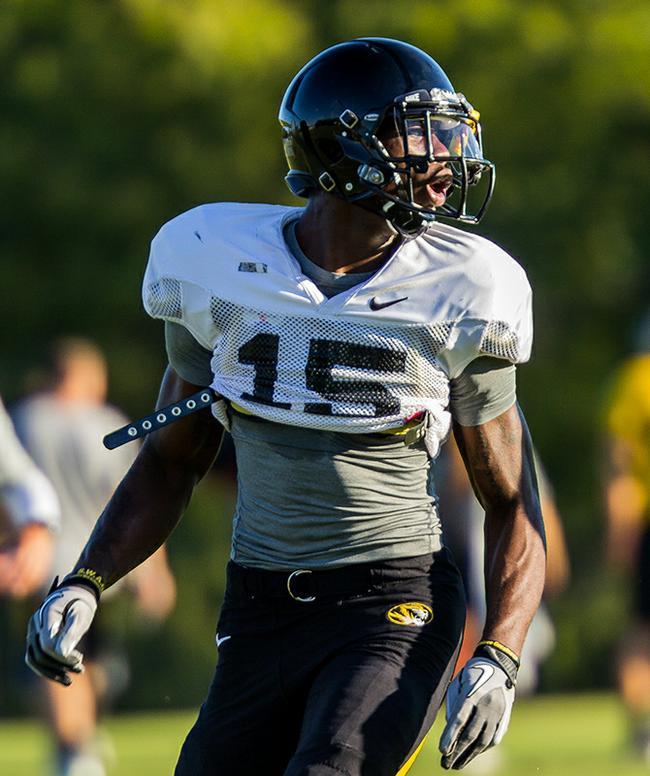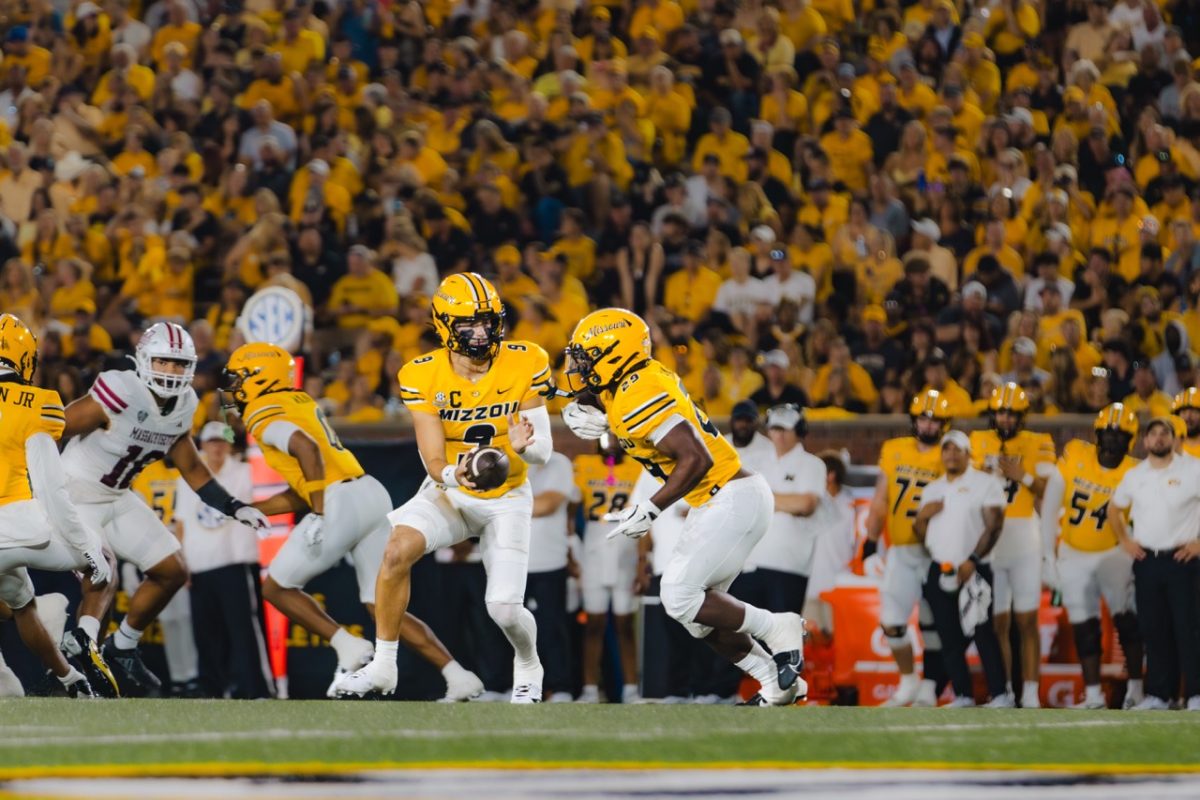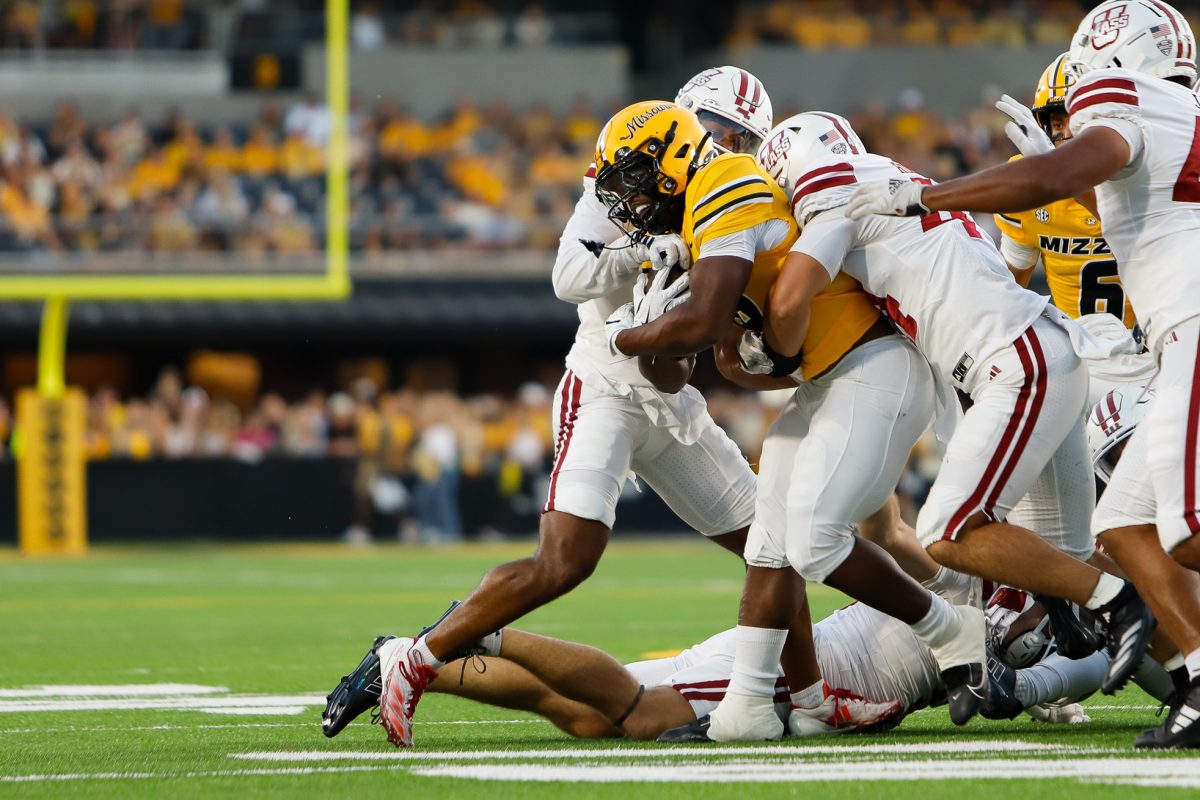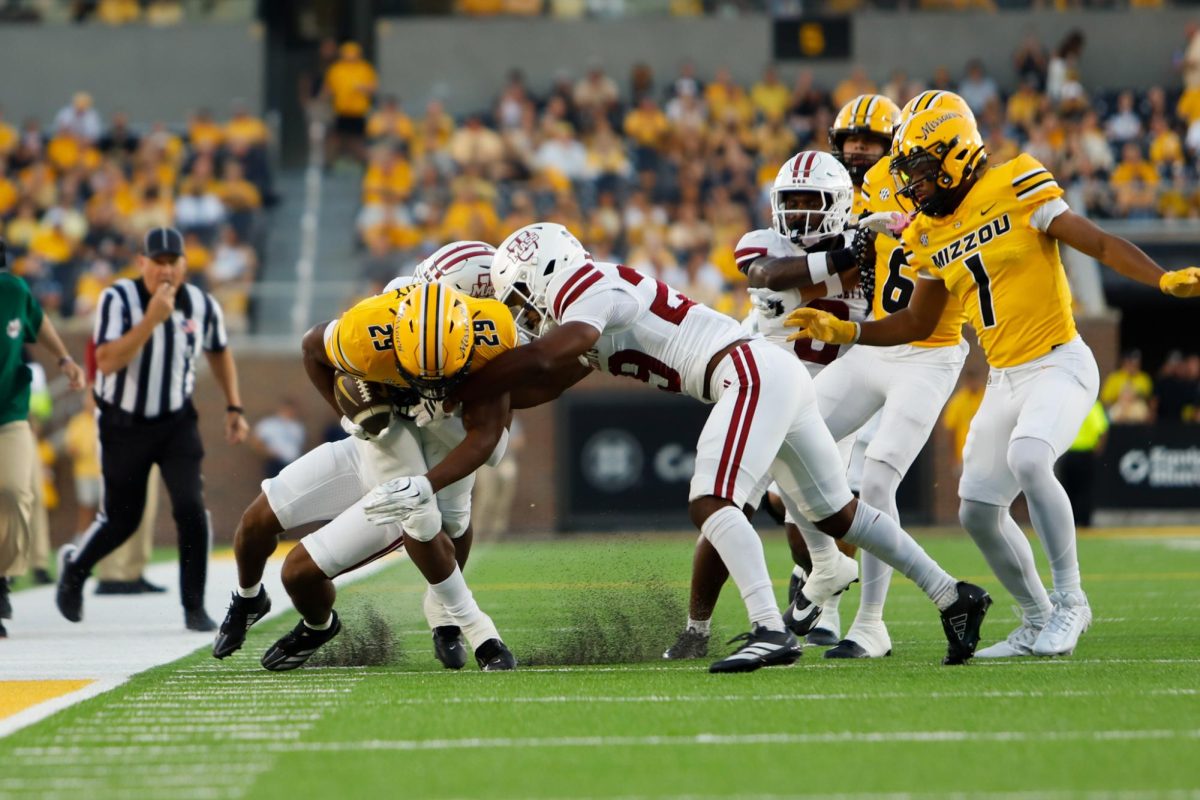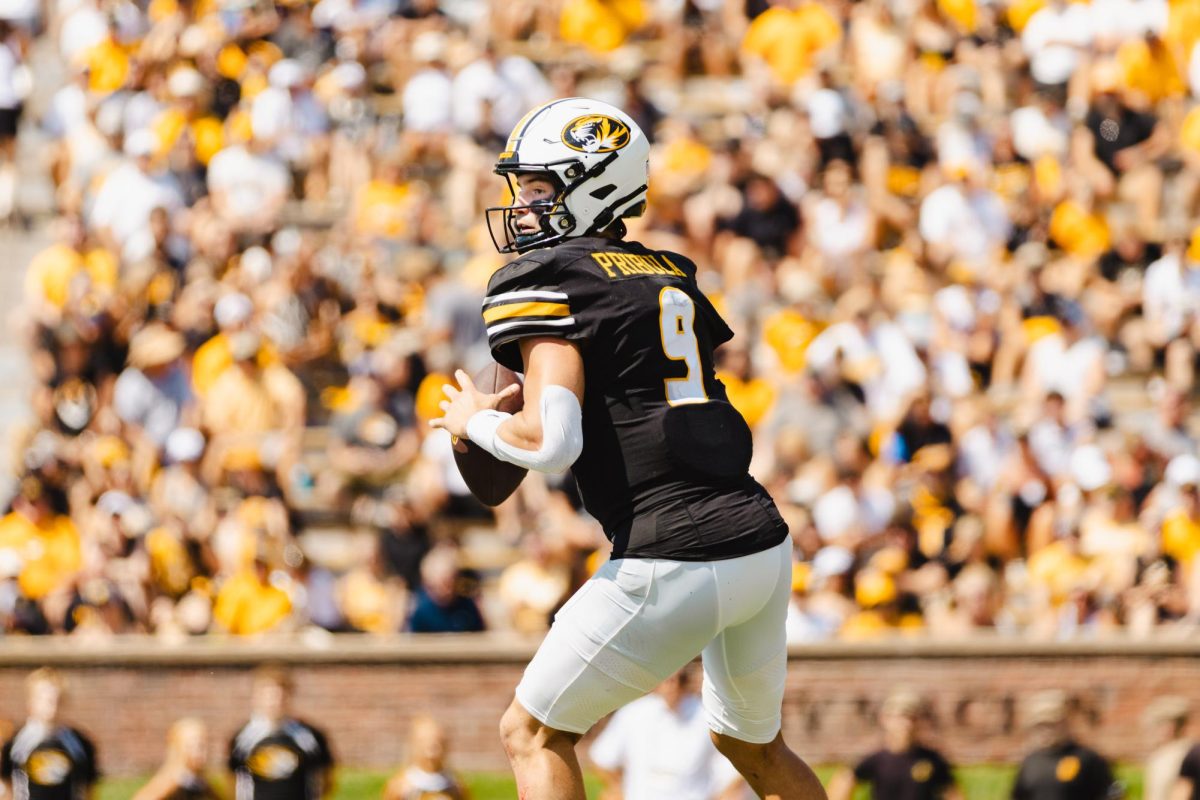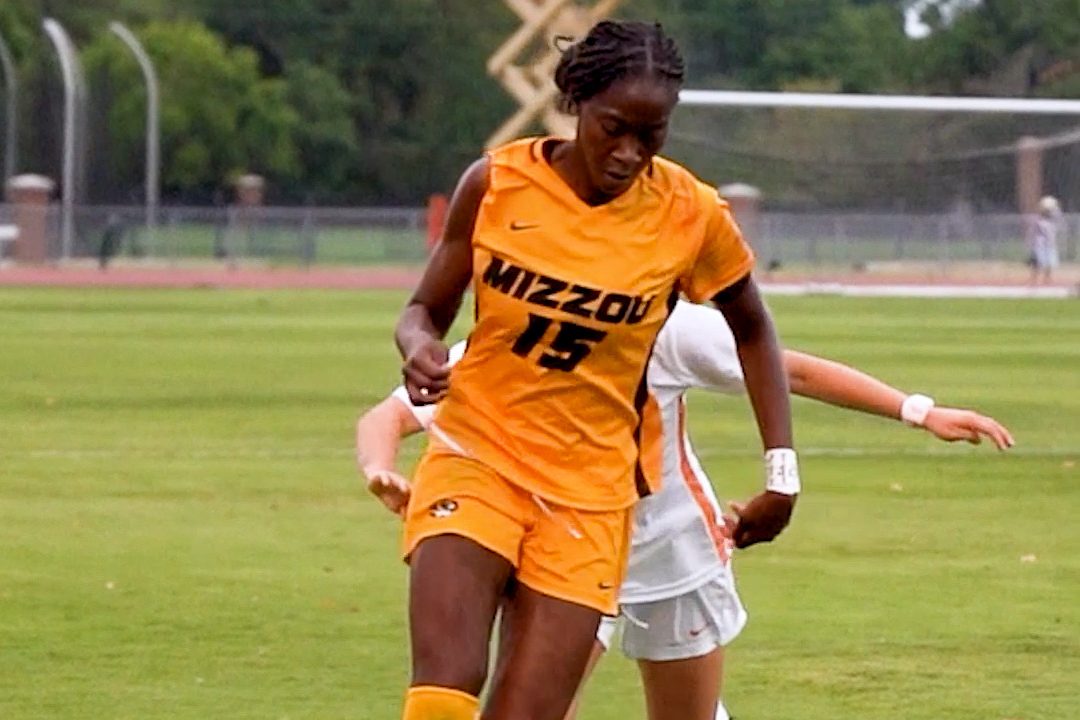_Sophomore receiver Dorial Green-Beckham was arrested in his hometown of Springfield, Mo., on Jan. 11 after police officers found a pound of marijuana in a car he was riding in during a routine traffic stop, according to Springfield police. He was booked and released from Greene County Jail hours later without bail or formal charges. The Maneater spoke with Columbia-based attorney Kevin O’Brien, who is not affiliated with the case, to find out what this means and what is next for Green-Beckham._
**The Maneater:** It’s been said that a pound of marijuana was found in the car. How often, if ever, do you hear about people driving around with that much marijuana in their car?
**Kevin O’Brien:** I hear about it quite often. A pound of marijuana is probably something that I think 10 years ago may have been characterized as a large amount. I think in this day and age, with Colorado having legal marijuana and marijuana really just becoming more readily available, I don’t think that’s necessarily indicative of anything nefarious in and of itself.
**TM:** So that much doesn’t necessarily mean someone is dealing or anything like that?
**KO:** I don’t think so. When you were dealing with marijuana as a pure black market substance, the significance of having a quantity of marijuana, or a large quantity of marijuana, (suspicion of drug dealing) was a much more reasonable inference. And now, with the legalization of marijuana in Colorado and medical marijuana and just the increasing availability of marijuana in the country because of some states legalizing, I don’t think it’s unusual. I mean, would you think it was unusual if a person in Colorado had a pound of marijuana in their house and they said, ‘Look, I just bought a pound of marijuana because I can go to the store and buy it.’ Would it be so strange to think, gosh, a person in Missouri might have had a friend from Colorado come in and they said, ‘Oh, yeah, I’ll bring you some marijuana,’ and they bring you a pound of marijuana because it’s not like you’re going to be going to Colorado all the time? I would say, in this day and age, no way. That’s my opinion.
**TM:** Does it not help him that he wasn’t driving the car? Does that have any sort of legal ramifications?
**KO:** Um, no. He has a right to be free from detention. There could be issues that come into play if it’s not his car. Permission to search was given. Generally, a passenger of a car has rights to be free from any kind of unreasonable illegal detention just like a driver does. A car is really not a protected area. And let me explain that a little further. A car is not like a house. A house, a person has to go get a search warrant and the police have to go in front of a judge, the judge signs a search warrant, they can go search the house, barring some kind of consent. Well, in a car, there’s no warrant requirement to search a car. All you have to have is probable cause to believe there’s contraband in there. So, I mean if he was illegally stopped, that’s one thing, but if they stop whoever’s driving the car, and Mr. Beckham was in the car, and they say, ‘We stopped you because you rolled through a stop sign,’ or ‘We stopped you because you turned right on red without stopping,’ or whatever, speeding, and they go up to the car and they say, ‘We smell marijuana,’ that’s probably all the probable cause they need to search that car. But let’s say there was no traffic violation and it was an unreasonable stop, Mr. Beckham would have just as much standing to assert that as the driver of the car.
**TM:** So they need some other reason other than suspicion of drug possession to pull them over?
KO: Unless it was a permissive search, they need an independent reason to stop and they need an independent reason to search the car.
**TM:** And the odor of marijuana would be enough reason to search the car?
**KO:** That’s right.
**TM:** What does it say that the three men arrested were released quickly without bail? Is that fairly common in that situation?
**KO:** It depends on what jurisdiction they’re in. In some of the larger metropolitan areas, they’re not necessarily going to make you post a bond in that type of situation because a prosecutor might take a chance to look at the charge and see what it is and make a decision on whether or not to charge it. I mean, possession of that amount of marijuana is a felony offense, so the prosecuting attorney has up to three years to bring the charge. And I would say it’s more indicative of the different type of system than you might have in Columbia, where … they might arrest you for that, take you in, book you and then release you on bond with a return date to come back to court as if they had already filed charges. In some systems they just say, ‘Well, we’ll arrest you and then a prosecutor’s going to review the charges, and we’ll see if we want to bring them or not. And if we don’t, that’s fine, and if we do, we’ll send you a notice in the mail that you have a charge.’ So the significance of letting them go, I mean it could be significant, but it could just be indicative of a different sort of system.
**TM:** What would the minimum and maximum punishments be in a case like this?
**KO:** I’d say the maximum punishment would be 15 years. I’d say, possession of that amount of marijuana, if they were alleging that you were intending to distribute it, could get 15 years. Minimum punishment would be — well, it’s a felony amount of marijuana, so anything from one to 15 years, depending on how the prosecutor wants to charge it.
**TM:** So jail time is pretty much expected for somebody in this case?
**KO:** No, I wouldn’t necessarily say that there’s any kind of served jail time that would come with this, but the potential range of punishment for something like this is, I would say, typically, be maybe zero to seven years. And if they wanted to charge it as a distribution offense, then it could be higher. But if there are multiple people in the car, then they’re going to have to prove that he possessed it himself or was acting in concert with these people.
**TM:** Several outlets have reported that the police are going to take the marijuana to a state lab for confirmation, and that could take as long as six months. Is that normal?
**KO:** The time frame on the lab confirmation? Yeah, I’d say.
**TM:** And even just the lab confirmation in general? Do they always have to do that?
**KO:** Well here’s the situation with this: Police officers can testify as experts in the identification of marijuana. And that is different from other types of drugs… . A police officer can’t look at a line of white powder on a mirror and say that’s cocaine or methamphetamine or whatever; they can’t look at some rocked up substance in a bag and say that that’s cocaine, so that stuff has to be sent to the lab for identification. Generally, when you’re dealing with a significant amount of marijuana, then you’re going to send it to the lab for weighing because they can’t testify as to the weight. And they may go ahead and confirm it as marijuana, but they don’t have to. That’s not required. The police can testify that, ‘Hey, we saw it. We know what marijuana looks like, and that’s marijuana.’ But the lab would have to say, ‘you know, it weighed 16 ounces; it weighed 12 ounce;, it weighed whatever.’


